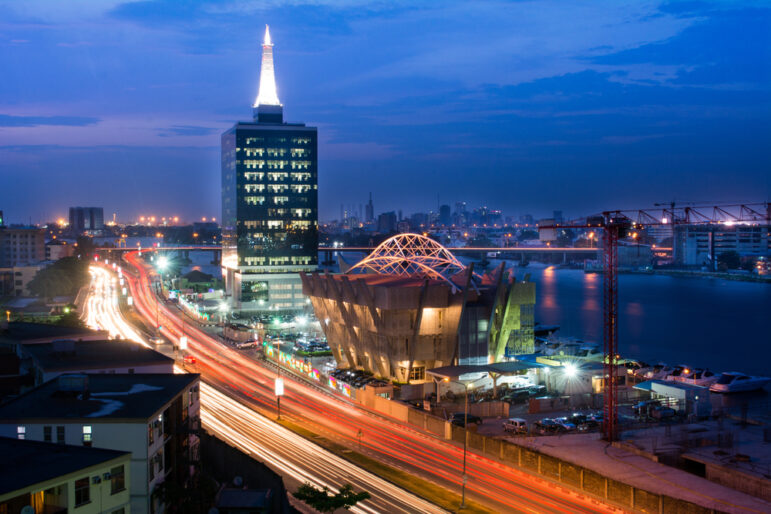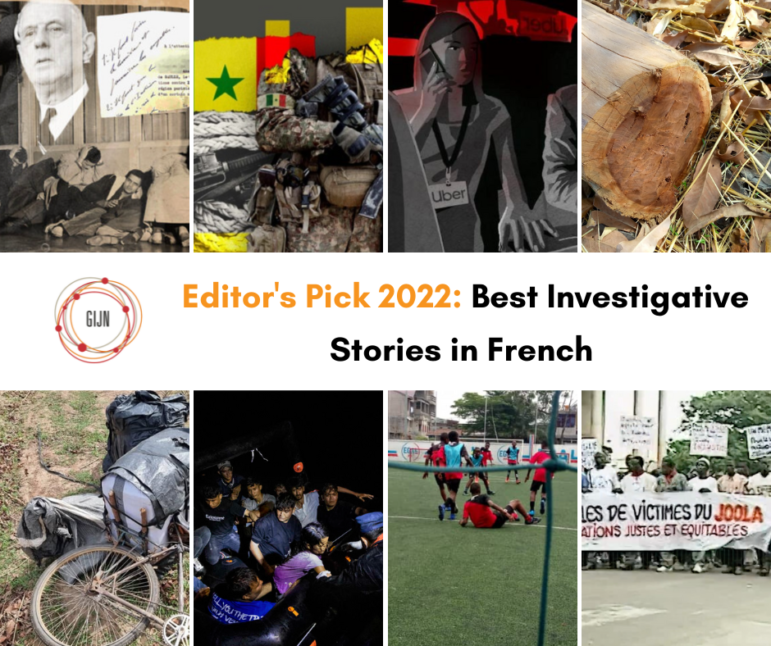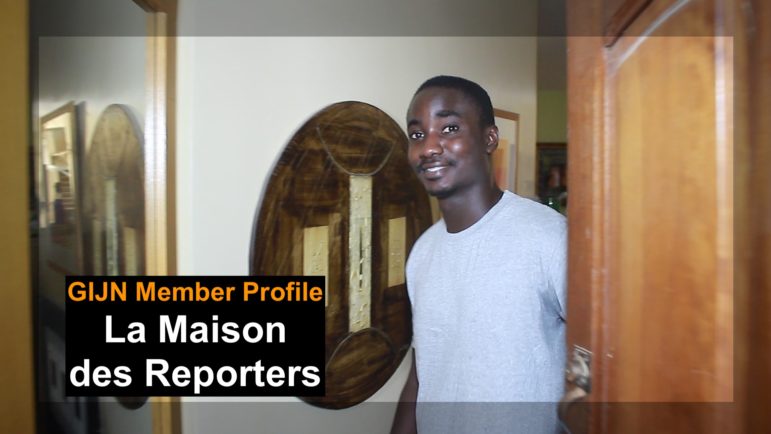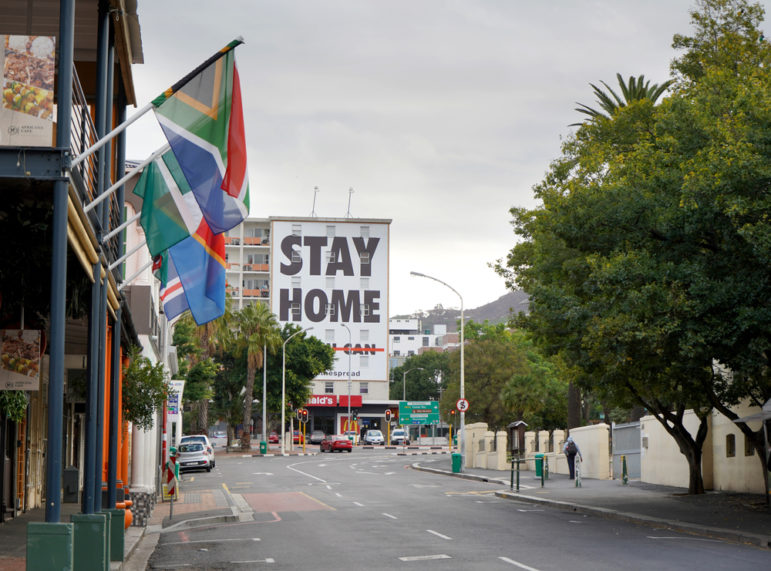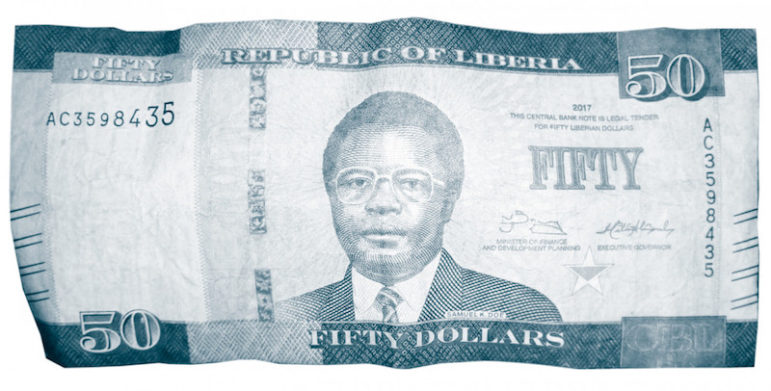

Courtesy: ZAM Magazine
Investigating the Money Men of African Kleptocrats

Courtesy: ZAM Magazine
Editors’ Note: The African Investigative Publishing Collective, a GIJN member, recently conducted a multi-part investigation into the associates that handle business for African kleptocrats. AIPC editor Evelyn Groenink shares how the story took form and the challenges faced by reporters spread across multiple countries.
It started with a conference in Ghana about African kleptocracies: those places where a politically powerful elite enriches itself at the expense of citizens.
Kleptocracies, it was said, were found in various regions of the world. But African countries were generally the worst off when suffering under kleptocratic rulers. It was in African countries that citizens would feel real hunger, or get infected with cholera because of polluted water, or not have access to any water sources nearby at all, while rulers lived their best life in mansions with swimming pools, sports cars, and often even private jets, going holidaying on yachts in the Caribbean or Monaco. We were there because we had exposed the incredible wealth gap and the African oligarchs at the top of it in our previous transnational investigation, aptly called “African Oligarchs.”
But where to go from there?
Follow their money handlers, someone said.
The rulers, after all, are politicians, arrived at power through generations-long connections, skillful manipulation of elections, and sometimes through violence and intimidation. They are usually not financially savvy. They have bankers, lawyers, accountants, consultants, and business friends who organize their extra income for them — for a good share, of course. It was this type of associate that we should look at. What do these “wealth managers” do and how do they do it?
It rang a bell with the colleagues who were there at the conference from, among other places, Ghana, Cameroon, and Nigeria, as well as with us from the African Investigative Publishing Collective (AIPC) and ZAM.
We took the discussion back to the colleagues in the AIPC. Overwhelmingly the responses came in: Yes, please, let’s investigate this “Mr. Coconut” who has been a partner of our dictatorship for four decades. And this Chinese “development company” that, together with some ministers and a general, first took all our timber and now our fish. The local bankers and accountants who partner with an Indian company and a former president’s son to loot a government project. The businessman whose “anonymous middlemen” siphon procurement money off our state so that all in the chain can have a share. The subcontractors who know the contractors who know people in our elite and who recently ran off with US$ 70 million. The money men who printed new banknotes and then took them all, leaving the rest of the country with such high inflation and food prices that they could not even afford rice anymore.
The stories were conceptualized at the last African Investigative Journalism Conference in Johannesburg, where our partners, the follow-the-money-experts of Finance Uncovered, helped to find the red financial threads in all the stories. And then the team went to work.
Soon, there were problems, of course. Estacio Valoi was detained by the army for three days in the region where he investigated both plunder and a mysterious insurgency. He lost his laptop afterward and, what was worse, the military people searched it thoroughly. The team member in Liberia found himself dealing with no less than three consecutive car accidents that killed whistleblowers in the new banknotes scandal. He asked if we could please not name him or he might be next, so we opted for a pseudonym in his case. Then, our reporter in the seventh country was told not to mess with the “dark and sensitive dossier” of a middleman who was “connected to the very top” there. Real judicial threats combined with intimidatory talk, in a country that ranges among the most corrupt in the world and is also known as unsafe for opponents and journalists, led to the decision to remove the seventh country chapter for now, only to publish it when our reporter is safe.
There were the lesser, run-of-the-mill problems. State suppliers who simply refuse to explain anything. Bad internet. Lack of paperwork. Government spokespersons who don’t have email addresses or feel even remotely interested in answering questions. Local media reports that can’t be trusted because of “brown envelope journalism,” whereby powerful individuals simply pay media to bring out stories that are good for them and bad for rivals. As a result of all the obstacles, difficulties, and obfuscation, all team members, once again, took longer than planned. The work piled up on the central editing side; sometimes it was easier, sometimes safer – often both – for mails and phone calls to come from ZAM instead of from a reporter on the ground.

A Chinese fishing trawler in the waters of Cabo Delgado, Mozambique. Picture taken in September 2018, a year after the fisheries director said that large-scale Chinese fishing had stopped in the province. Photo: Estacio Valoi
Fortunately, we got a lot of support. After the initial guidance, Finance Uncovered continued to assist with fact-checking the stories. Africa Uncensored (AU) came in fully from Nairobi, participating in this project with two colleagues; they made a — still to be released — documentary along the way, too. In turn, AU’s data forays in Kenya benefited hugely from specialist help by Finance Uncovered’s Margot Gibbs. In Mali, David Dembélé’s colleagues from the International Consortium of Investigative Journalists helped provide the connection between a dodgy businessman and the Panama Papers. Ricardo Ebbenhorst at ZAM sifted through documents and educated us about the tricks used by the kind of accountants who featured in our stories. Help also came from the Committee to Protect Journalists in Estacio’s case. And of course none of this would have happened without the financial support from transparency-minded donors, in this case the US-based National Endowment for Democracy.
We also did some things centrally at ZAM and the AIPC. We liaised with members and kept track of how and what they were doing. We worked on strengthening the connections between colleagues on all the corners of the continent. We kept documents and clips safe. We navigated between French, English, and a bit of Portuguese and ploughed through sometimes confused testimonies that came from nightmarish places. We kept asking who, what, where, when, how, and why while Skype, WhatsApp, and other connections buzzed with interference and inaudibility. (The more secure, the more inaudible, or did we imagine that?) With all that, team members reading up on, and discussing, each others’ progress was a pipe dream. We communicated spiderweb style, from the center to each team member and back, with only very general team updates on WhatsApp.
But in the end, we got the water invoices from Mali, the land grab documents from Zambia, the fishing companies registrations from Mozambique, and the interview with the Liberian exile in the US. We got the picture of the Chinese trawler that the fisheries director said was not in Cabo Delgado waters at all, the testimony of the terrified bank sources, and the Nigerian Senate Committee reports on the steel plunder. We did not receive much comment from those implicated, perhaps understandably, but ask for comment we did, even – especially – from the threatening people.
All in all, we would have needed perhaps months more to do this. But we managed, stumbling, falling as we did, and imperfect as the result may be.
Next time we’ll do better. Because a next time there will be. We are not done, not by a long shot.
First of all, stay tuned for the missing chapter to come …
This article first appeared in ZAM Magazine and is reproduced here with permission.
 Evelyn Groenink is the investigations editor for ZAM Magazine. She co-founded the Forum for African Investigative Reporters, a network of investigative journalists in Africa, and served as its director from 2005 to 2011. Her own reporting has included investigations into the assassinations of Southern African freedom fighters.
Evelyn Groenink is the investigations editor for ZAM Magazine. She co-founded the Forum for African Investigative Reporters, a network of investigative journalists in Africa, and served as its director from 2005 to 2011. Her own reporting has included investigations into the assassinations of Southern African freedom fighters.





